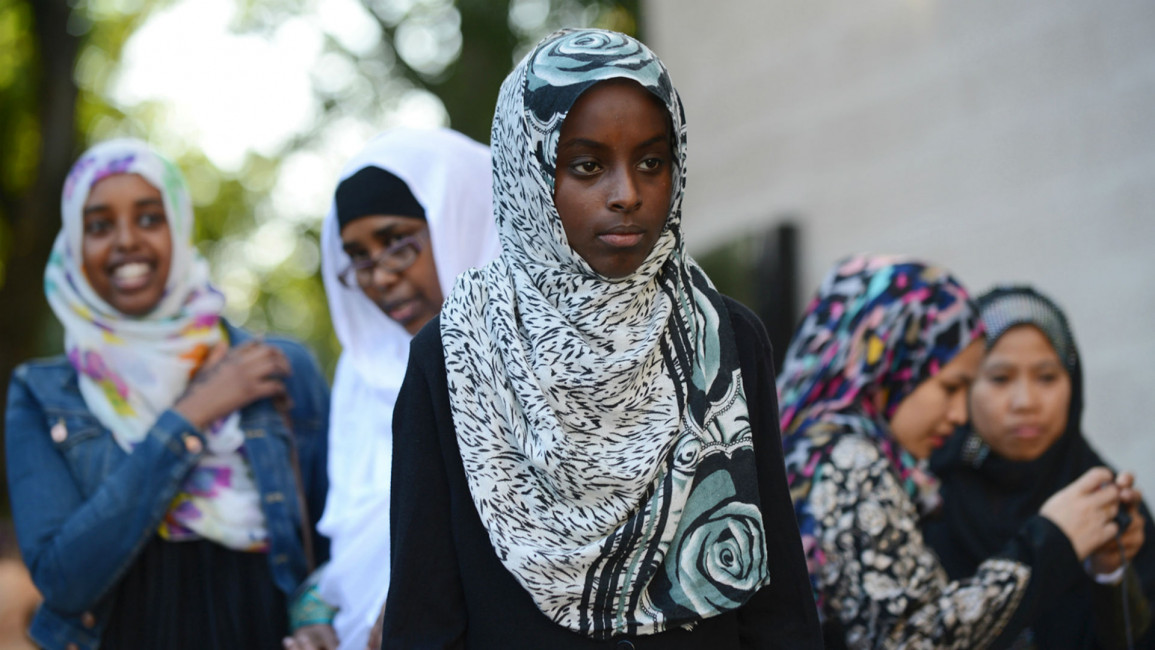Islamophobia 'hindering social mobility' for young UK Muslims
Muslims face the largest economic disadvantages of any faith group in the United Kingdom with Islamophobia and discrimination creating immense barriers to social mobility.
A new report published on Thursday by the Social Mobility Commission, an independent advisory body for the government, found that Muslims are being held back at every stage of life, facing significant disadvantages in housing, educational, unemployment and health.
Success at school is not being translated into progress in the labour market, the report says, with only one in five Muslim adults in full-time work compared to one in three in the overall population.
Only six percent of Muslims are in higher professional jobs, compared with 10 percent of the overall population.
'Work ten times harder'
The findings of the report were based on in-depth focus groups and interviews with young Muslims to explore the personal experiences of growing up in Britain.
Participants said that "racism, discrimination and a lack of cultural awareness" had impacted their career progression.
While expressing a strong work ethnic and desire to succeed in school and beyond, many young Muslims felt they had to work "ten times as hard" as non-Muslims to get the same opportunities.
 |
Muslims are excluded, discriminated against, or failed, at all stages of their transition from education to employment |  |
Most interviewees felt that applicants with ethnic-sounding names were less likely to get job interviews, with one participant saying her father actively encouraged her to change her name in order to find work.
Muslim women wearing the hijab faced particular discrimination in the workplace due to wearing a visual marker of difference.
Other cultural factors also significantly impacted Muslim women, with many being encouraged to focus on marriage and motherhood rather than gaining employment.
Eighteen percent of Muslim women aged 16 to 74 were recorded as "looking after home and family" compared to six percent of the overall female population.
"Muslims are excluded, discriminated against, or failed, at all stages of their transition from education to employment", Professor Jacqueline Stevenson, who led the research, said.
"Taken together, these contributory factors have profound implications for social mobility".
'Broken promise of social mobility'
Nearly half of the Muslim population of the UK (46 percent) live in the 10 percent of the most deprived local authority districts, leading to implications for access to resources, school attainment and progression to higher education.
In schools, young Muslims who were interviewed reported that teachers had low or stereotypical expectations of them, with insufficient Muslim teachers or role models available.
The services available are also not enough to fill parental gaps, such as being educated in a different system or lack of knowledge or access to social networks.
Some young Muslims said they avoided asking for help for fear they would be bullied or harassed, resulting in many simply "giving up".
 |
Some participants said they responded to these challenges by asserting their Muslim identity, while others felt pressure to hide it so as not to constrain their career choices |  |
In higher education, young Muslims are more likely to drop out or gain fewer good degrees (1:1 or 2:1) than their non-Muslim peers.
Many felt they were constrained due to unequal access to good universities either by geography, discrimination at the point of entry, or personal reasons of fearing being a minority.
The report found that overall young Muslims felt a real challenge in maintaining their identity while striving to succeed in Britain.
Some participants said they responded to these challenges by asserting their Muslim identity, while others felt pressure to hide it so as not to constrain their career choices.
"The British social mobility promise is that hard work will be rewarded", Alan Milburn, the former cabinet minister who now heads the Social Mobility Commission, said.
"Unfortunately, for many young Muslims in Britain today this promise is being broken".



